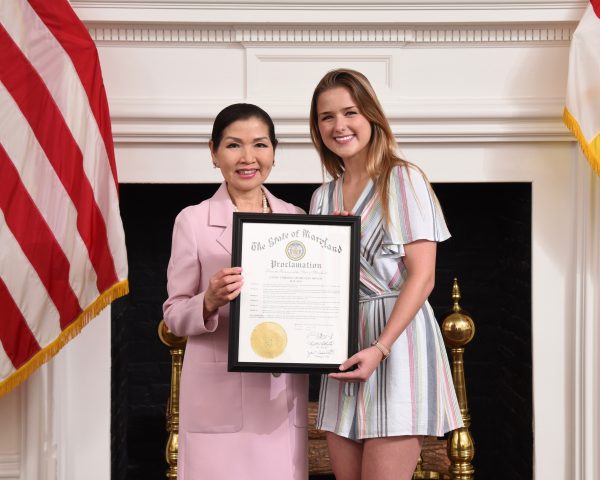If anybody knows the rules of social distancing, it’s patients with cystic fibrosis (CF). Well before the pandemic, patients with this genetic condition were practicing the 6-feet apart rule to reduce their risk of serious respiratory infections.
CF causes thick mucus secretions to develop in the lungs and other organs, often the pancreas. More than 300 known gene mutations are associated with CF, each causing slightly different severity and symptoms, such as:
Most patients are diagnosed in infancy. Just 50 years ago, having CF meant a child wasn’t expected to live to adulthood. Nowadays, thanks to medical advances and research made possible by the CF Foundation, patients are living into their 50s and older, giving rise to the relatively new field of adult CF care.
My team and I see adult patients at our CF Foundation-accredited Level III Cystic Fibrosis Center at Children’s National Medical Center. Our multidisciplinary team helps guide patients through all facets of treatment, from exercise and physical therapy to nutrition, respiratory, and psychosocial support.
Ruby Steuart, a 21-year-old nurse technician at MedStar St. Mary’s Hospital, is one of 15,000 U.S. adults with CF. According to Ruby, she’s “on the healthier end in the grand scheme of CF.” Even so, she needs around two hours’ worth of treatments every day to control her symptoms.
Diagnosed at 18 months old, Ruby has managed her own CF treatment routine since middle school. She’s going to give us a glimpse into her daily life with CF. Then we’ll regroup and discuss the latest in cystic fibrosis, including updates on the CF wonder-drug, TRIKAFTA.
Giving back to the CF community.
Volunteering with the CF Foundation is one of my biggest passions. In 2019, I became a CF Foundation Great Strides ambassador. My role involves fundraising, marketing, public speaking, and social media outreach to encourage people to attend our events.

Ruby receiving a proclamation from Maryland’s First Lady Yumi Hogan declaring May Cystic Fibrosis Awareness Month in Maryland.
Every year, Team Fireworks participates in the CF Foundation Great Strides walk in Annapolis. To date, our team has raised approximately $50,000 for cystic fibrosis research.
Having CF also allows me to give back by participating in clinical trials. In 2019, I traveled to New York City for a clinical trial, and I’m currently enrolled in a study for a new combination of CF medications. Search the CF Foundation Clinical Trial Finder.

Ruby with friends and family at the 2017 CF Foundation Great Strides walk in Annapolis.
I join clinical trials to help get better treatments for myself, my friends with CF, and even people I’ll never meet. Like many other patients with CF, optimism keeps me going. We must keep pushing forward, with patience. I know a cure will come someday, and when it does, it will be amazing.
CF medication can transform patients’ lives.
As Ruby mentioned, prioritizing self-care is essential for successful adult CF outcomes. And taking the proper medication combination is a large contributor to that success.
Four drugs are approved by the US Food and Drug Administration (FDA) to treat CF. These drugs either:
- Help the cystic fibrosis transmembrane conductance regulator (CFTR) proteins stay open longer at the cell surface (potentiators), or
- Bind to the CFTR proteins to help them reach the cell surface better (correctors)
The most recently approved drug was TRIKAFTA in 2019—a twice-daily pill that has transformed the lives of thousands of patients with CF. The three-drug combination CFTR-modulator is the first drug that addresses the most common CF mutation, F508del, which affects 90% of patients.
Essentially, TRIKAFTA can stop the CF disease process in its tracks. In many patients who take it, their lungs stop producing excess mucus altogether—sometimes within a week of starting treatment. Patients who are eligible for TRIKAFTA include those with CF who:
- Are 12 or older
- Have at least one F508del gene mutation, or
- Have at least one other newly approved mutation that is responsive to TRIKAFTA
Ongoing research here at MedStar Health and around the country is looking at long-term outcomes with TRIKAFTA. We are working to better understand whether residual disease remains despite symptom improvement with the drug, and if so, how to treat it.
Provider education for better outcomes.
A continuing area of emphasis for our CF center is education: for patients, MedStar Health providers, and community providers throughout the U.S. Since the disease once had a short-term outlook, there is a great need for education in the provider community to prepare them for generations of adults with CF who will need primary, reproductive, and specialty care.
Though these patients don’t necessarily need anything different, their providers should understand their condition and daily routine as it relates to planning medications and procedures. MedStar Health’s multidisciplinary CF team fans out to our network of system and referring providers in all fields to provide awareness, guidance, and support in the care of adult patients with CF.
The future of CF treatment.
Along with ongoing research around TRIKAFTA, we are also studying options to treat tissue long-term inflammation and organ damage once a patient’s symptoms are well-controlled. This relatively new area of study will become increasingly important as the life expectancy for patients with CF continues to extend.
As patients grow into adults, they’ll get the chance to deal with all the typical health and lifestyle stressors many people take for granted: busy careers, raising families, developing arthritis and wrinkles. Just 50 years ago, children with CF might not have dreamed of such a future for themselves.
Through the whole trajectory of life, from infant diagnosis to a ripe, older age, we consider it an honor to partner with patients in their management of cystic fibrosis. Looking forward, we expect our CF program to grow alongside our patients.
Get exceptional adult cystic fibrosis care at MedStar Health.
Our CF specialists help patients transition from pediatric to adult care. Click below to learn more about pulmonary care at MedStar Health or to find a specialist.
Learn More.